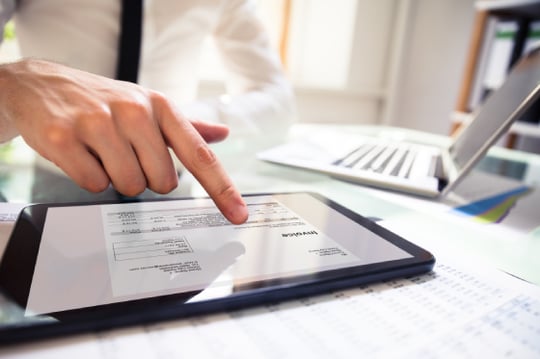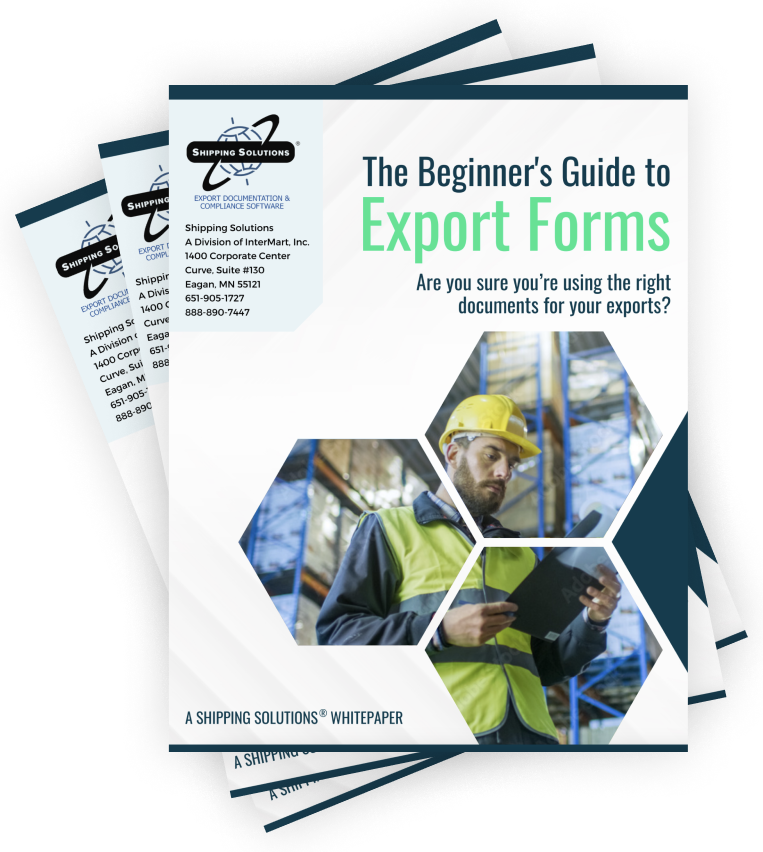The International Trade Blog International Logistics
How Much Do Customs Brokers Charge?
On: December 14, 2022 | By:  David Noah |
4 min. read
David Noah |
4 min. read
 In the last few years, international trade has been in the news more than ever before. Everyone—even the common layperson—is more attuned to trade-related news than ever and is more aware of the importance global exporting plays in daily life. And no one sees the roller coaster of global trade calming anytime soon.
In the last few years, international trade has been in the news more than ever before. Everyone—even the common layperson—is more attuned to trade-related news than ever and is more aware of the importance global exporting plays in daily life. And no one sees the roller coaster of global trade calming anytime soon.
For those of us who are in the industry, one of the most crucial roles for navigating that roller coaster is the customs broker. We spoke with Jay Devers, managing partner at Bestway International, to learn more about what customs brokers do, why they are an important export partner, and what you can expect to pay for their services.
Customs Broker: A Definition
A customs broker is defined as a "private individual, partnership, association or corporation licensed, regulated and empowered by U.S. Customs and Border Protection (CBP) to assist importers and exporters in meeting U.S. government requirements governing imports and exports." In other words, their main role is to be the required liaison between CBP and an importer, helping to clear goods through customs in the country of import. They must have expertise in the entry procedures, admissibility requirements, classification, valuation, and the rates of duty and applicable taxes and fees for imported merchandise.
What types of services does a customs broker provide?
A customs broker is a specific term used to identify the intermediary between the importer and the government’s customs department in the country of import. In many countries, including the United States, a person must pass a customs broker exam to be licensed to operate in that country. Not too many government functions include a third party as part of the process—this role is so crucial that it requires a license.
Brokers submit necessary information and appropriate payments to CBP on behalf of their clients and charge them a fee for this service. In addition to facilitating inbound cargo in the U.S. on behalf of an importer, a customs broker is charged with advisory and compliance-related tasks. They are an authority in how to classify goods as they come into the country as well as compliance-related processes and procedures that need to be followed (with the Harmonized Tariff System, for example). Importers don't always use the correct code: whether it’s a mistake or negligence (to save money on duties or for other financial gain), it’s the customs broker’s responsibility to ensure correct classification.
Finally, customs brokers are required to file accurately and keep records of transactions. However, don’t forget, a good customs broker will remind you that you are ultimately liable for your imports and therefore include you in the importing process.
How much do customs brokers charge?
Just as with many partnerships in exporting, there’s not one cost for hiring a customs broker. Many customs brokers use a rate sheet or rate card to price their services and provide a level of transparency. They may charge varying rates depending on:
- A broker’s level of experience in the industry.
- Whether or not the broker is required to fill out an Importer Security Filing (ISF) form.
- If the broker can combine services on your shipment.
- Whether or not a broker is offering promotional rates to “win” an account.
- The level of electronic integration and technology used (vs. manually completing forms).
According to Devers, what customs brokers charge varies wildly; choosing a partner by price is not the best way to select a customs broker. Instead, you should do the following:
- Choose a small number of customs brokers to handle your accounts instead of hiring a single broker for every shipment.
- Look for a broker’s technology/automation abilities. That means, at minimum, access not only to U.S. Customs and Border Protection, but also to various web portals and cargo tracking sites. Your broker should be able to communicate easily with you via telephone, email and fax. A broker who is doing things by hand is exposing themselves to more error. Importers must take a serious approach to this because there is a low limit to the accountability they can hold a broker—ultimately, your compliance is up to you, not your broker (or any other partner).
- If you have a specialized product line or type of import, find a broker who either specializes or has a great deal of expertise in clearing your type of product. For example, textiles, apparel and alcoholic beverages have numerous laws and regulations that apply to their importation. Not every broker is experienced in handling these products, and choosing the wrong broker could cause you trouble.
- Vet prospective partners. Devers suggests several interviews at the C-level with compliance officers involved and limited trials of shipments/time periods before the relationship is considered in good standing and long term.
- For small businesses, look for a partner who can take friction out of the exporting “system.” Can they handle the process from beginning to end—from vendor purchase order all the way to delivery—and then integrate that into a single invoice? Small businesses don’t do this all day and probably don't have dedicated staff to handle this the way customs brokers do, which is why the relationship with their customs broker is incredibly valuable.
Overall, importers should take hiring customs brokers seriously: Have high standards for your partners. Limit the number of customs brokers you hire to the smallest number possible, and hold them as accountable as you can—include them in your planning, problem solving, etc., and put real value in your relationship, steering it away from a service provider/customer arrangement toward a partnership as possible.
It is vitally important that you select a customs broker who can handle your import-export business efficiently and accurately, because good brokers and forwarders are an invaluable partner. By working closely with your broker and forwarder, you can minimize errors and enhance compliance. The wrong partner, however, can cause delays, errors and penalties.
Like what you read? Subscribe today to the International Trade Blog to get the latest news and tips for exporters and importers delivered to your inbox.

About the Author: David Noah
As president of Shipping Solutions, I've helped thousands of exporters more efficiently create accurate export documents and stay compliant with import-export regulations. Our Shipping Solutions software eliminates redundant data entry, which allows you to create your export paperwork up to five-times faster than using templates and reduces the chances of making the types of errors that could slow down your shipments and make it more difficult to get paid. I frequently write and speak on export documentation, regulations and compliance issues.


